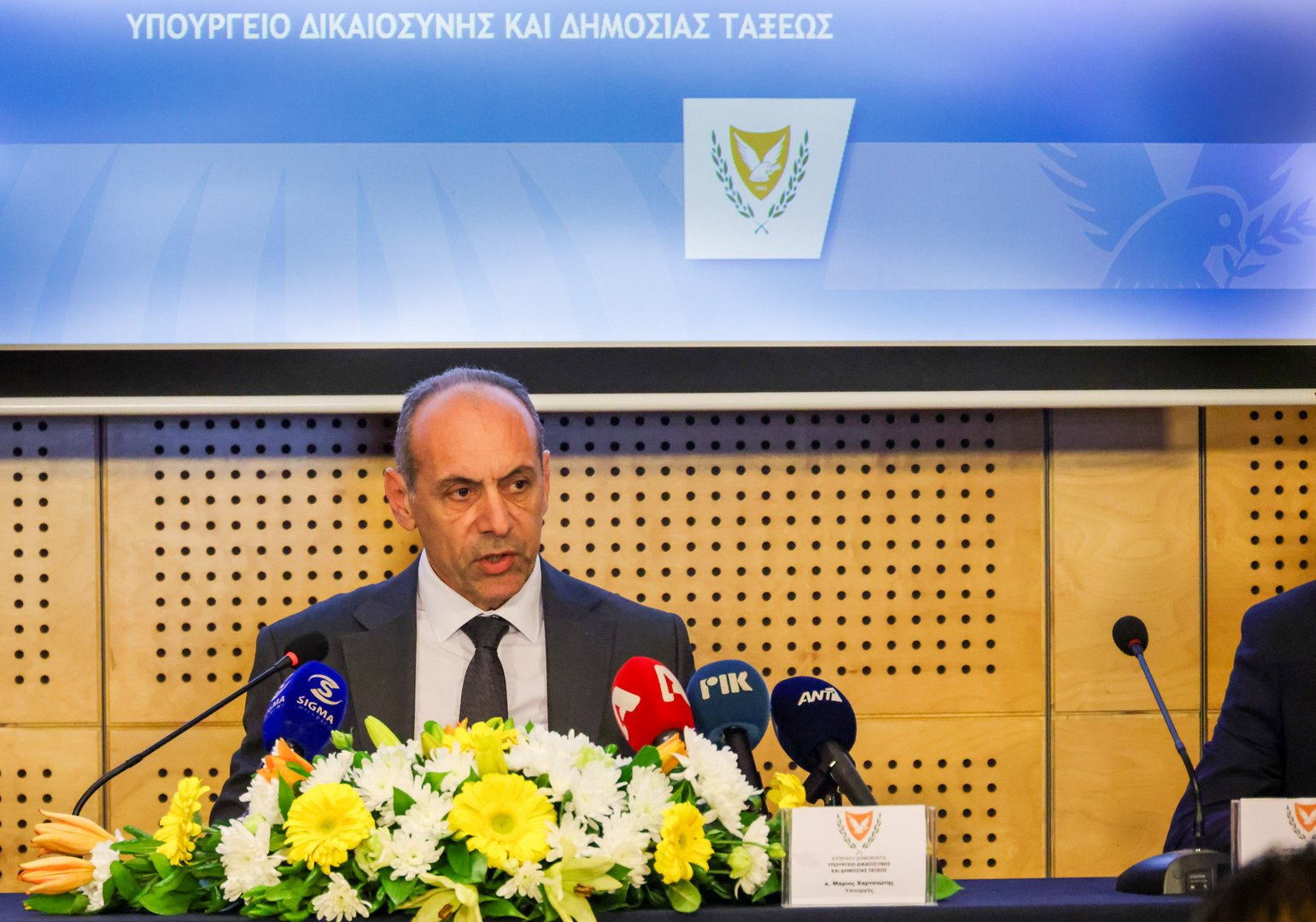Justice Minister Marios Hartsiotis on Friday pledged to fight against the “gangrene” of corruption.
Speaking on behalf of President Nikos Christodoulides at an event to mark the world day for diversity, he said the government aims to “create safeguards to preserve and protect meritocracy, integrity, legality, and transparency”.
“We owe it to our country, to its citizens, and to our young people, whose trust we must regain. Trust will be earned not with nice words or nice statements, but with concrete actions and deeds,” he said.
He added that the fight against corruption will “require everyone’s cooperation”, and that the government is making efforts to preserve the country’s reputation on the matter.
On this point, he referred to previous statements made by Christodoulides in which he had said, “you can build on your name internationally for years, but it only takes a minute to ruin it”.
He said the creation of the anti-corruption authority in 2022 was an “important milestone” in Cyprus’ fight against corruption, and that “judging by the number of complaints submitted since its establishment, it has been proven that the authority has gained people’s trust”.
Additionally, he pointed out that the anti-corruption authority’s budget was increased by 72 per cent this year compared to 2023, and that the government had in May begun a study with the aim of revising the laws regarding the hiring of staff in the authority, with the aim of expanding it.
These statements come after MPs had on Wednesday demanded that the authority be expanded with the hiring of new staff, with Akel MP Aristos Damianou saying the authority is moving slowly in its investigations of cases partly due to a lack of personnel.
Parliament had last month approved the allocation of €390,000 to cover the authority’s expenses until the end of the year, after the authority had asked for the money to be able to pay investigators, lawyers, stenographers, and persons serving summons.
In total, around €1 million has been invested in the authority this year.
It has received a total of 315 complaints, of which 85 were anonymous, and launched three investigations of its own volition.
The authority does not have criminal investigatory powers. It may summon witnesses, but testimonies given to the authority may not be used as evidence in a court of law. The authority’s findings are forward to the attorney-general’s office, which then decides whether the police will be instructed to carry out a criminal investigation.







Click here to change your cookie preferences